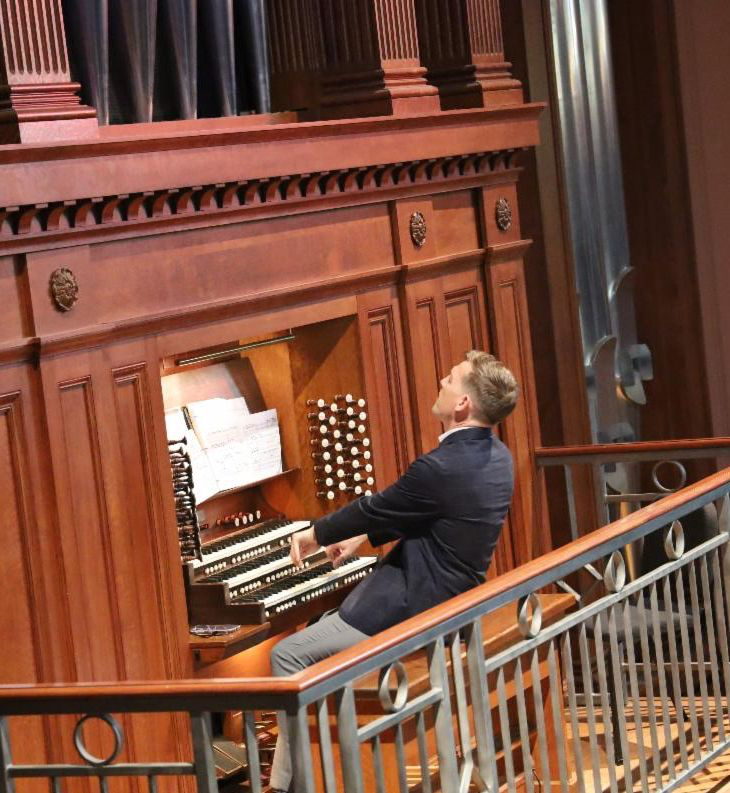by Jarrett Hoffman

•Today: organist Jonathan Moyer at the Covenant
•Tonight: Oberlin ensembles preview U.N. performance
•All-Italian Almanac: Donizetti’s joyful high C’s, a cavernous bass role from Monteverdi, and tearjerking Puccini
HAPPENING TODAY:
At noon, the Church of the Covenant’s Tuesday Noon Organ Plus series will feature Jonathan Moyer performing on both the Newberry Organ (music by J.S. Bach) and the Chancel Organ (works by C.H.H. Parry, David Conte, and Charles-Marie Widor). A freewill offering will be taken up.
And at 7:30, Raphael Jiménez will lead three Oberlin ensembles — the Orchestra, Musical Union, and College Choir — in music by Adolphus Hailstork, Sergei Rachmaninoff, and Beethoven at Finney Chapel. It’s a program with a little extra significance in that it will be repeated for the 77th United Nations General Assembly at Carnegie Hall on December 2. It’s free.
Details in our Concert Listings.
TODAY’S ALMANAC:
This day in music history is thoroughly Italian.
Gaetano Donizetti was born on November 29, 1797, while Claudio Monteverdi and Giacomo Puccini died on this date in 1643 and 1924, respectively.
In other words, time for some opera.
As far as joyful music befitting a birthday, Donizetti would surely appreciate his “Ah! mes amis” (from La fille du régiment), a celebration of love — and of high notes. Peruvian tenor Juan Diego Flórez (above) is a master of that aria and its series of sky-high C’s. When he sang it at La Scala in 2007, it only seemed right on that occasion to break a 70-year-old rule forbidding encores. Click here to watch him perform it at the Royal Opera House.
As for the opposite of birthday — and the opposite of high notes — the scene of Seneca’s death from The Coronation of Poppaea is an appropriate choice for Monteverdi. Finnish bass Matti Kalervo Salminen sings the role of the philosopher Seneca in this excerpt from Jean-Pierre Ponnelle’s film version of the opera, conducted by Nikolaus Harnoncourt. Be sure to listen for the low D at the very end, which you should be able to find somewhere way down in the Marianas Trench.
Whereas Seneca accepts death in a way that rids it of any sense of tragedy, there are few tearjerkers quite like Pucinni’s “E lucevan le stelle” from Tosca, from the scene where Cavaradossi sits in prison awaiting his death and longing for his love. Watch Jonas Kaufmann sing the aria here in another beautiful video from the Royal Opera House. You can admire in this performance both the high drama of the ending, and the dazed expressiveness of the opening, where “sweet kisses” never felt so far away.




